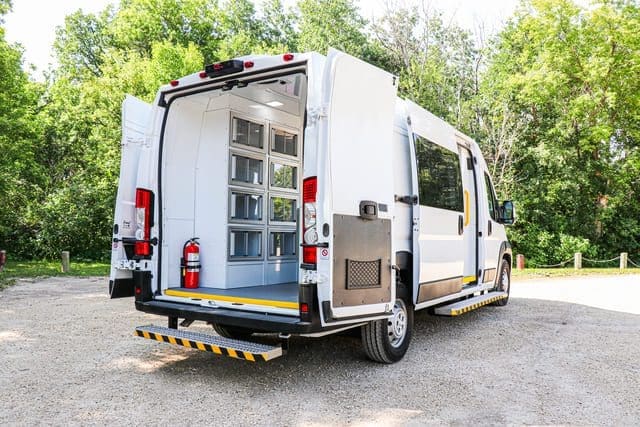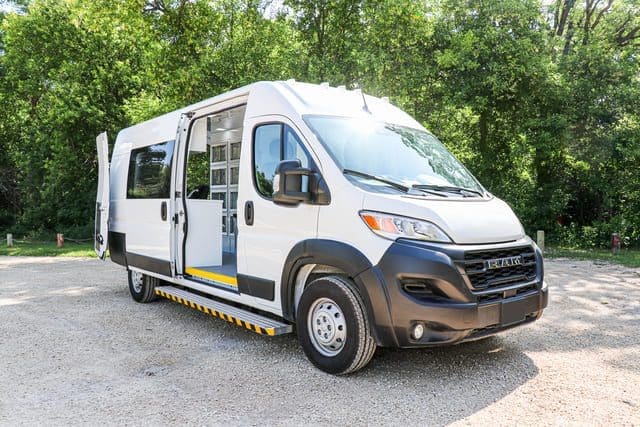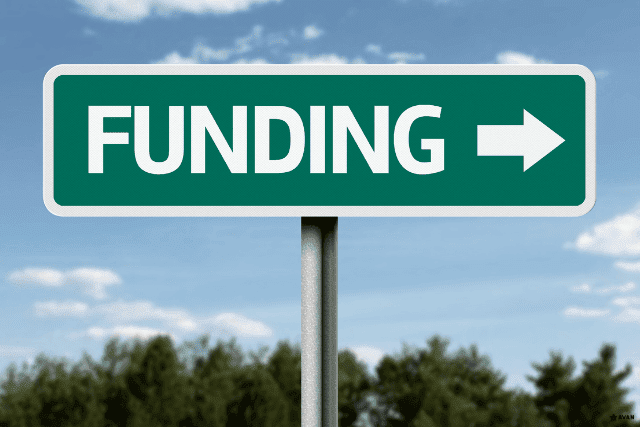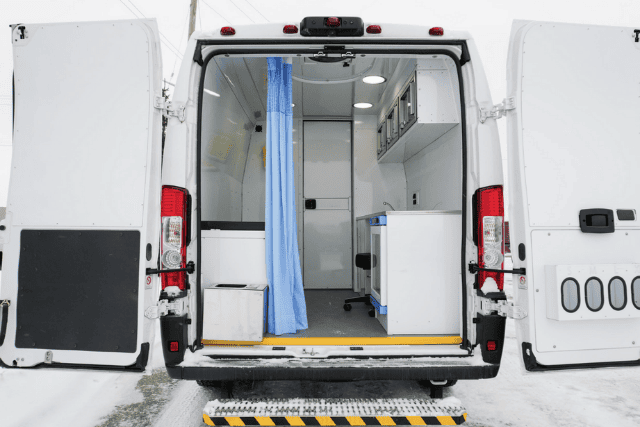Is your organization considering starting a mobile clinic and wondering what communities will benefit from it? Without clearly defined target communities, the financial resources supporting your clinic might get a bit scattered. As a result, you won’t be able to reach the people who need healthcare the most. It’s also harder to secure ongoing funding if you don’t know who you’re serving. You need to read this article to learn what communities benefit from mobile clinics in the U.S.
At AVAN Mobility, we manufacture mobile clinics for different types of organizations. Some of them include housing and homeless societies, Native reservations, addiction services, and non-emergency response services. We’ve been doing this for over a decade, so we’ve gotten a close look at the types of communities these organizations serve.
In this article, you’ll learn about some of the communities around the U.S. that benefit from mobile clinics. By the end of reading, we hope you’ll have a clearer idea if one of the communities we talk about is on the radar for your mobile clinic program.
Who exactly benefits from mobile clinics?
Mobile clinics help lots of different communities in the U.S. They’re like a moving doctor’s office that goes around the country where it’s needed most. Let’s take a look at what types of communities benefit from them.
Small towns and villages in remote areas
Mobile clinics are like a traveling health team that reaches small towns and villages where healthcare is hard to find. These areas are often far from big cities and have no nearby doctors or hospitals. People living in small villages have to travel long distances just to see a doctor.
With mobile clinics stepping in, people in these small towns and villages don’t have to travel far for healthcare. Mobile clinics are ideal for people with mobility issues, or if they don’t have access to transportation.
Communities that are tight on finances
In some communities around the U.S., money is tight, and getting to a doctor can be hard because it costs a lot. Mobile clinics are a huge help here. They don’t care about money because a lot of them run on donations or government funding. Their first priority is helping people.
These clinics go to neighborhoods and provide medical care where people aren’t financially secure. They also provide medical care to those who don’t have health insurance. They offer their services at little to no cost, and their goal is to make sure everyone gets the medical attention they need.
Homeless communities
Living on the streets or in temporary shelters exposes individuals to harsh weather conditions and unsanitary environments, increasing the risk of health problems.
People without homes often struggle to get medical help for a few reasons.
Stigma: Some homeless people avoid seeking help to dodge judgment from medical staff or the public. Mobile clinics offer a judgment-free environment, making it easier for homeless individuals to seek care.
No transportation: Accessing healthcare facilities is difficult for those without a fixed place to live. Public transportation is unreliable, and simply getting to a clinic or hospital can be a major obstacle.
Financial barriers: Without steady income or insurance, homeless individuals may avoid seeking medical care due to the perceived cost. They worry about medical bills they can’t afford, which can lead to untreated health issues.
Mobile clinics reach out to these individuals. They go to areas of the U.S. where homeless people stay, like shelters or streets. An example of this is Skid Row in downtown LA.
Native communities
Native communities often face barriers to healthcare for several reasons. That’s why it makes them a strong focus for mobile clinics to reach out and serve. Let’s look at a few reasons why these communities benefit from mobile clinics.
Geographical isolation: Lots of Native communities are located in remote areas. This makes it tougher for community members to access consistent medical services.
Limited infrastructure: Remote native communities don’t have many hospitals or clinics. So, there aren’t many places for people to go to when they need a doctor. This means they have to travel really far for medical help.
Cultural sensitivity: Each community has its own special beliefs and ways of doing things. Mobile clinics that understand this and respect these different ways can offer healthcare that fits with what the community likes and feels comfortable with.
Trust and familiarity: Mobile clinics that consistently visit these communities build trust and familiarity. Repeated visits allow healthcare providers to understand the unique health needs of these populations and establish ongoing relationships.
Disaster-stricken communities
During emergencies, like big car accidents or natural disasters, quick medical help is super important. Mobile clinics step up in these tough times and here’s why they’re crucial:
Rapid response: When a natural disaster or accident happens, people need fast medical care. You can use a mobile clinic in these scenarios to rush to these places and give immediate help to anyone who needs it.
Anywhere, anytime: These clinics can drive to nearly anywhere in the U.S. at any time of the day. They’re not stuck in one place like traditional clinics are, so they can go where they’re needed most.
Basic and urgent care: In emergencies, basic medical care is really important. Mobile clinics can offer this care immediately, which can save lives. You can customize your mobile clinic with a sink, fridge, and other valuable equipment to save people’s lives.
Support beyond the crisis: Even after an immediate crisis, mobile clinics can continue to help by providing ongoing medical care and support to affected areas. They can stick around to make sure people recover well and get the care they need post-emergency. This is a big deal in making sure everyone’s health gets back on track after tough times.
Elderly communities
Mobile clinics support elderly individuals in assisted living centers or retirement homes. These communities often have limited mobility, making it challenging to access regular healthcare. Mobile clinics cater to their specific medical needs on-site.
Support for veterans and military communities
Many veterans and people living in military communities suffer from PTSD, combat-related injuries, and chronic health conditions. Mobile clinics help veterans and people in the military by giving them healthcare that fits their specific needs.
Your next steps with AVAN Mobility
You came to this article looking for more information on what type of communities mobile clinics serve.
You learned about some of the different communities your organization can serve with a mobile clinic.
Our Mobile Clinic Van at AVAN Mobility is the perfect solution for your organization to serve some of the communities we’ve listed above. It has a “doctor’s office on wheels setup”, a patient bed with under-bed storage, rear heat and air conditioning, and options for advanced medical equipment.
At this point, you should look at our mobile equipment list article. This article will give you a better idea of what type of equipment you can install in our Mobile Clinic Vans. You should also look at our article on the top 10 tips for fundraising for a Mobile Clinic Van. This article highlights some important tips you can use to make it easier for your organization to afford one of these vehicles.
If you’d like to talk to someone instead to learn more about the Mobile Clinic Van or any of our medical vans, click the button below to talk to a mobility expert.





